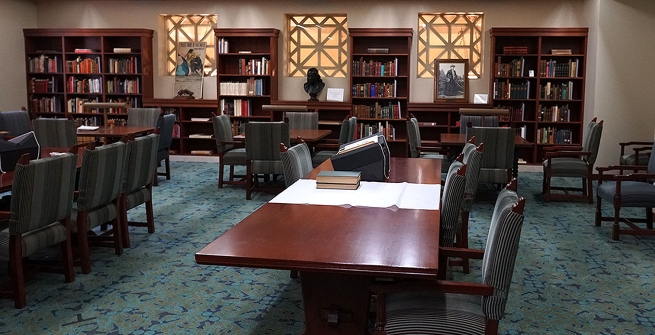There is something special about visiting the library and losing yourself in a good book. It can become more special when you find a surprise inside that book. An item meant to be forgotten, found again and given new meaning. It can be as if you found another chapter to the book, a hidden story only you get to know. Working at the Los Angeles Public Library's Special Collections department, we have found many ephemeral items tucked away in books, and in this blog, we get to share some of those hidden chapters.
The simple basis of today's library is to borrow an item and return it in (hopefully) the same condition. Many people do just that, but humans can be forgetful and sometimes leave behind items inside a book. The usual culprits are items that were used as a bookmark. Take, for example, this check found inside the book Dora's Cook Book. The check is for delivery to the San Diego Union and is dated 1942. We can only imagine how this check made this cookbook its home, but a good guess would be it was used as a bookmark. They are both long rectangular items that can mark where you left off in a book. This check was easy to find in this book because, just like a good bookmark, the book opened straight to the page it was on.

Cookbooks seem to be a good source to find ephemera. In La Cocinera Poblana, we found an envelope filled with recipes from an old newspaper. It is fitting that someone looking at a cookbook would have other recipes to compare; however, the envelope also had a newspaper clipping of a cartoon. It depicts a man dressed in military attire with his name, Perez Castro, on the top and at the bottom, the word "Razurese," or shave yourself in English, printed at the bottom. The reverse side of the cartoon has a partial Mexican address, so we can conclude the newspaper is probably from Mexico. We can only wonder why this cartoon was included in the envelope and what its importance was to whoever cut it out.


It is this wonderment that makes finding something such a pleasant surprise, no matter how mundane the item might be. Take, for example, a birthday card found inside a copy of Reminiscences of a Ranger. The card, featuring a cute cat, is for "Uncle George" given to him by Kate and Topsy. We once again can let our imaginations run wild about the lives of Uncle George, Kate, and Topsy. We can infer that Uncle George must have really loved the card to keep it with him whenever he read the book. Alternatively, perhaps Uncle George did not care much about the gift and just shelved the book, never noticing the card. The truth might never be known.

Some found items open up a new chapter of mystery. Take, for example, a poetry book written by Herbert Hoover High School students titled Flights. The "verse book" written in 1931 has a photograph between its pages. The photograph is of three young children sitting on the floor. The photograph itself is blurry, and the film is in poor condition. The mystery is not only who the people in the photo are but how did this photo end up in this book? Does the photograph belong to a student featured in the book? Perhaps the photograph has no relation to the book and was just forgotten. As a verse on the page where the photograph was found says, "That unsolved puzzle - we all want to understand."


Not everything is so mysterious; some found items can make you feel a direct connection to the book and its previous handlers. Looking through an Illustrated Guide to Yosemite Valley by Virginia and Ansel Adams, a postcard was found at the beginning of the guide. The postcard has a photograph of the majestic El Capitan mountain found at Yosemite on its front, while the back offers a photo description and an oil company advert. The guide was probably used for its purpose, to guide a traveler through the wonders of the national park. Looking through the guide, with the addition of the postcard, we can feel as though we went to Yosemite ourselves. We can imagine looking through the guide, deciding what hiking trail to take, and reminiscing about our imagined time there.

Not only can you be transported to a place, but a found item can transport you to the past. The book California Football History by Brick Morris recounts the history of UCLA football, and inside its pages, history comes alive. Tucked away at the end of the book are a couple of newspaper clippings related to UCLA football. One of the articles features the date December 31st, 1937, the same year the book was published. Looking through the articles makes one feel transported to that moment in time. The flip side of one article features advertisements for New Years' Eve events and dinners. We can only imagine how it must have been to attend these events and how it compares to our modern world.
As we have shown you, books can hide more than just written words between pages, but can also bring unexpected tales in the form of forgotten items. This is especially true for library books that are shared among many. So next time you borrow a book from a library, please return it how you found it, and do not forget your valued items.
